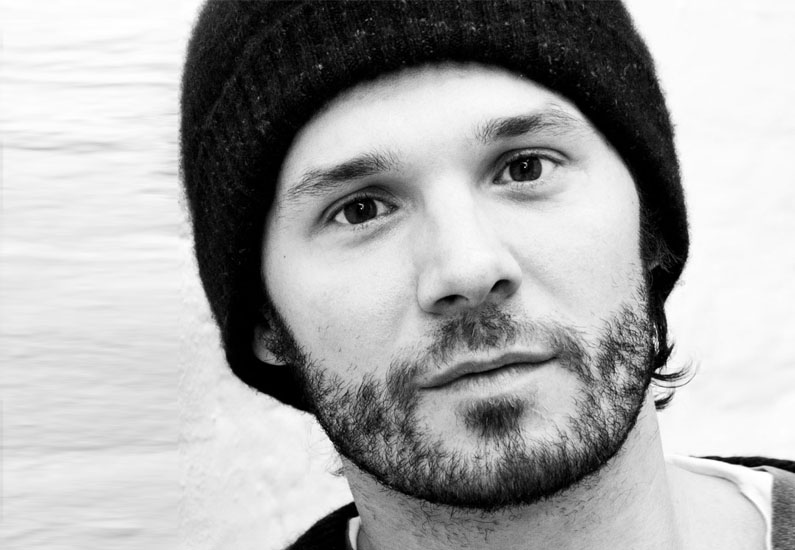Oliver Bronner, co-founder of stylemarks and now working as a Creative Director for Home 24 talks about the challenges and difficulties of stylemarks.
Oliver, stylemarks is now part of JUNIQE. What exactly does it mean to be ‘part of JUNIQE’? And what strengths do you bring to the table and into this partnership?“We basically merged with Junique in April 2014, where JUNIQE acquired the majority of stylemarks’ assets. We provided a loyal costumer base that proved to be very active in social media channels and a state of the art #1 ranked apple store app.”
Can you provide a little more detail as to the specifics of this cooperation?“In the process of founding and operating Stylemarks, we gained a lot of expertise in m-commerce, which we could then apply to drive Juniqe’s business growth. Furthermore, we have built an active community with over 20,000 users that have a high interest in art, design and fashion. A perfect fit for Juniqe’s product offering.”
Back in 2013, you told us in an interview that customer retention over a longer period of time will be the biggest challenge for stylemarks. Now, Stylemarks is part of another company. Did you fail in achieving your main goal?“I think there were a couple of reasons that came into play why stylemarks didn’t turn out to be the success we originally aimed for. But looking back at it now I regret that we didn’t work longer on our initial idea before we pivoted to a new model. I would have loved to see stylemarks focus on a niche and develop internationally, and as a result see the community thrive and grow.”
Did we get that right: You changed your business too early?“Yes. And in hindsight, this decision was rushed and unwise. Instead of evaluating all of our options and further potential opportunities, we made the hasty decision to pivot to a model without analyzing its weaknesses and strengths in detail. The best thing we could have done would have been to release all employees and give ourselves enough time to analyze our product and reevaluate its value proposition. Furthermore we perceived our technology as an investment rather than sunk costs at that point which turned out to be a burden for further product development and business decisions.”
Tell us something about the consequences.“From a customer perspective, stylemarks was perceived as an e-commerce shop rather than a marketplace. This leads to high customer expectations in terms of delivery times and customer service. Unfortunately we had hardly any control over the supply chain and encountered problems with our suppliers from day one. This led to a high customer touch point to purchase ratio, which in combination with the low margin commissions was not sustainable financially speaking. And this despite a GMV- (gross merchandise value) cost ratio above market standards.”
Consequently, failing was not caused by missing customer retention?“We actually had a pretty healthy retention rate on iOS mainly because of the product discovery feature which we could not recreate in a similar engaging way on the web. Furthermore, the problems above mentioned did not help to build long-term customer relationships.”
If we look into the future, what can we expect from JUNIQE?“JUNIQE is on its way to becoming Germany’s leading print-on-demand shop for affordable art, positioning itself as an affordable alternative to the many hip expensive art galleries. The trend is also positive in Europe, where JUNIQE is now driving its international expansion with the goal of becoming Europe’s leading affordable art shop.”
Would you personally found another startup in the fashion segment?“I am not sure I would focus on fashion again, but I do like the aspect of creating online brand identities and i love mobile. We are just at the beginning of the mobile (re-)evolution. Just imagine that there are more than 4,3 billion people on this planet who are still using feature phones – what an opportunity. Currently I am consulting Home24 as a creative director to establish the Home24 brand and to adapt their brand identity across all channels. I am happy to work with a data-driven team to help build the Home24 brand as the go-to home and living destination in Europe. I am sure there will be some great opportunities in the near future to build a new business but for now I do enjoy my new job.”
Now let’s give you the chance to provide some tips advice for other startup founders: What are the things that you have learned the most in the course of your Stylemarks time?“I would never again found a company with three co-founders. With so many people involved the decision making process: a.) is unnecessarily long for a startup at that stage; and b.) too many opinions lead to compromises in the product vision and a mediocre product. “Too many cooks spoil the broth”. Best setup: One product guy/manager and one techie.”
What about the product side of a new business?“A cool product or a great idea doesn’t automatically make a good business. We frequently received great feedback on our design, got covered by the mainstream media and were featured in the Apple app store, yet we still were unable to build a sustainable business. My advice: If you do not solve a customer problem or create a new market with a customer need, you DO NOT have a business.”
Co-founder, stylemarks
Oliver Bronner, together with Marc Linneweber, Stefan Decker and Andrey Bezyazychniy, founded the Berlin-based stylemarks in late 2012. In early 2013, the startup closed its first funding round, in which Venista Ventures also took part. In 2014 JUNIQUE acquired the majority of stylemarks. Oliver is now working as a Creative Director for Home 24.
